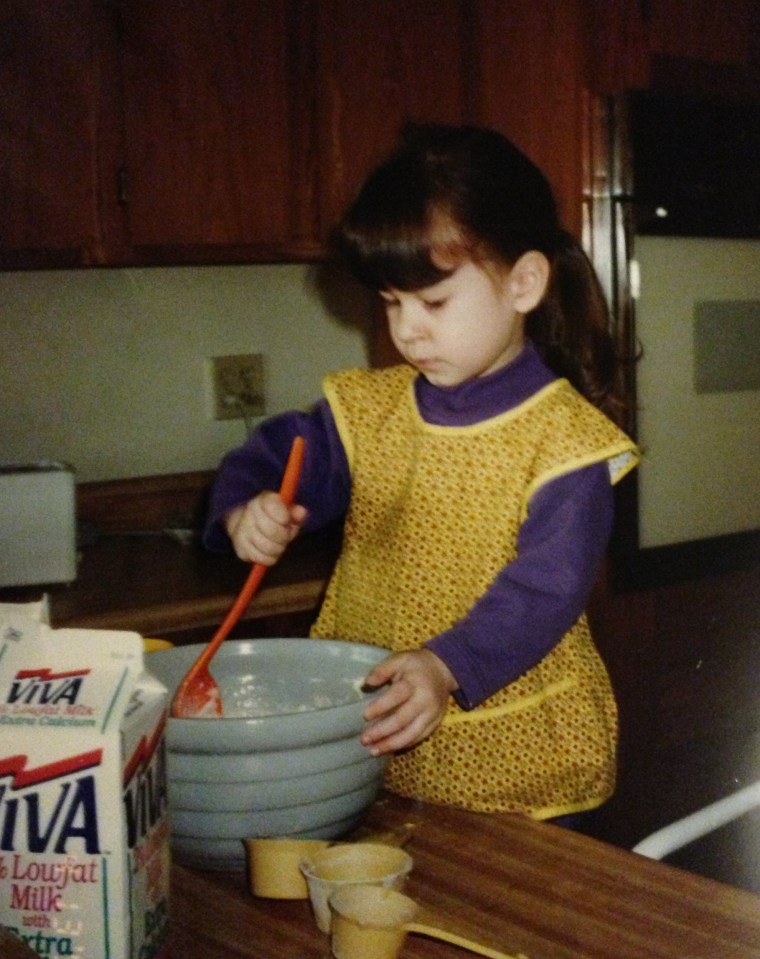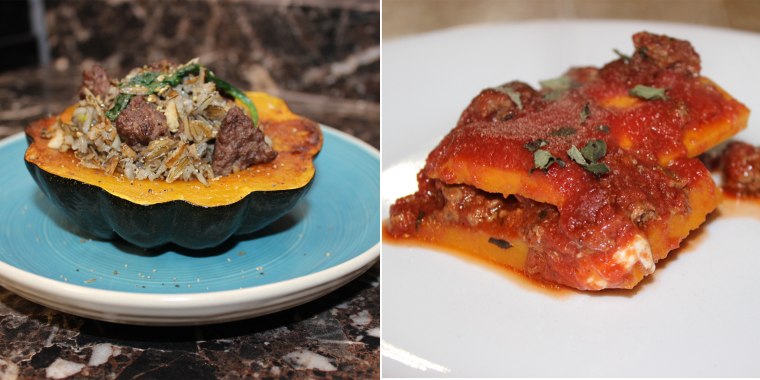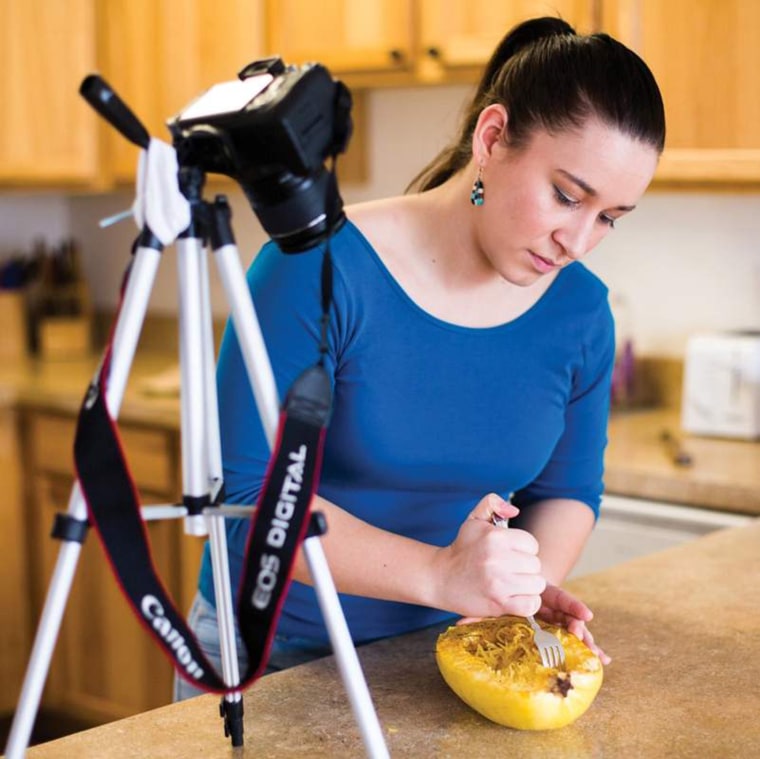At just 27 years old, Mariah Gladstone is using food to make a major impact on her community.
Gladstone, who grew up on a Blackfeet reservation in Northwest Montana, told TODAY that she grew up with respect for land and "recognized where food came from" after her father and grandfather built her a garden, where she was able to grow things like corn and carrots. Her mother also let her experiment in the kitchen, and she said that, combined with an understanding of her ancestor's diets, allows her to try new things.
"I got to experiment a lot, and because of that I recognize how to really create things out of these ingredients that not everyone knows how to work with," Gladstone explained. " … Traditionally, Blackfeet people ate very seasonal diets, a lot of wild game meat or preserved berries, lots of fresh wild greens. We know of Blackfeet consumption of 82 different types of plant species in the region."

However, when the Blackfeet were forced to move to a much smaller reservation, those diets changed, and fresh, seasonal foods were replaced with processed foods. While those processed foods were designed to be shelf-stable and last a long time, they were high in preservatives, and that change in diet had a devastating impact.
"For many communities, it means very high rates of diabetes, obesity, malnutrition, heart disease," Gladstone explained. "And in Montana, our life expectancies for both men and women are 20 years less than the non-native population."

Gladstone said that when she moved to New York City to attend Columbia University, she had prepared frozen packages of beloved foods like moose and elk "so that I would have it back in my dorm room." And when she graduated, she decided she wanted to help connect people to their ancestral recipes.
"When I moved home, I realized that there were still a lot of people, because of this multi-generational disconnect from our traditional food systems, that didn't know how to prepare traditional Indigenous foods," Gladstone explained. "And so I jokingly said 'I'm going to start a cooking show,' and someone kind of laughed at me and said 'Okay, Mariah.' So then I had to do it, of course."
Gladstone launched "Indigikitchen" in late 2016. The online cooking show focused on celebrating Indigenous foods and recipes, featuring recipes like bison butternut squash lasagna and elderberry syrups.

"I just started putting things out there," Gladstone explained. "Even from the very, very first video I did, there was immediate response, people wanted to know how to prepare Indigenous foods, and so I cooked what I knew how to. I asked my friends for recipes, I dreamt up recipes."
Now years into the project, Gladstone, who is a SUNY College of Environmental Science and Forestry grad student and works with policy and advocacy groups to fight for Indigenous inclusion and food sovereignty, said she's happy to see people show interest in her work and take steps to add traditional recipes to their diets.
"I see people tagging their family members, like, 'Grandma, can we make this this weekend?' or sending me pictures of the recipes they've prepared," Gladstone said. "And it's those collections of response that let me know what I'm doing is working. They're revitalizing their own health, but also Indigenous food systems in general. I would like to think of myself as a gardener, planting these seeds for the future, to feed, both literally and metaphorically, future generations."